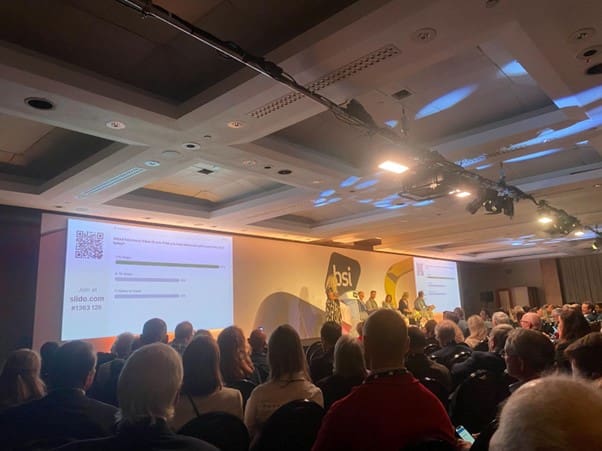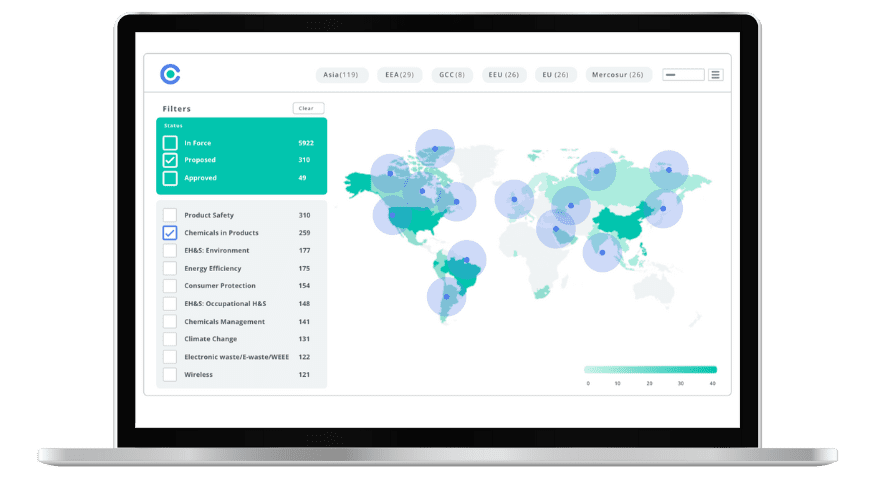
From Digital Rights to AI Governance: Key Takeaways from the BSI Standards Conference

This blog was originally posted on 28th May, 2025. Further regulatory developments may have occurred after publication. To keep up-to-date with the latest compliance news, sign up to our newsletter.
AUTHORED BY CHELSEA CUNNINGHAM, SENIOR REGULATORY COMPLIANCE SPECIALIST, COMPLIANCE & RISKS
Opening Reflections on AI and Standards
The recent BSI Standards Conference brought together global experts to explore how standards can help ensure artificial intelligence delivers benefits safely, fairly, and inclusively. Dr Eunsook Moon, ISO COPOLCO Chair, in the opening session framed standards as essential “red lights” in the AI era, guiding signals in an increasingly complex digital environment. The current global framework for AI standards lacks harmonization, leaving consumers vulnerable in a fast-moving technological landscape. As AI systems become more powerful yet invisible, consumer rights are being sidelined. The key message emerging is that the narrative needs to shift to the idea that “Consumer rights are digital rights,” which in turn, need to be embedded in the design and governance of AI technologies at all elements of the product lifecycle.
Standards as Tools for Risk Mitigation
Later in the day, discussions explored the real-world implications of standards for diverse consumer markets. Organizational practices, intentional or otherwise, shape how consumers interact with AI, and unintentional harm from biased algorithms, poor data handling, or weak oversight can have lasting impacts. Standards were described as essential tools to mitigate these risks. One speaker pointed out that the involvement of consumer voices was highlighted as critical to identifying unintended or passive misuse and ensuring accountability across sectors.
Questioning the Assumption of Progress
The notion that digital innovation inherently leads to progress was a hot topic throughout the day and led to conversations around “digital regression” and the potential for digital empowerment to actually erode autonomy. Concerns were voiced over regulatory disparities between regions that tend to embrace deregulation and those with stricter oversight. The global imbalance in power, influence, and data infrastructure was seen as a major obstacle to ensuring equitable AI development. There was also discussion around the rise of scams, the climate impact of data centers, and the growing risk of low-quality generative AI.
The Need for Global Cooperation
A global perspective session examined the need for inclusive international cooperation, particularly to prevent smaller economies from being excluded from shaping ethical AI norms. Broader questions were also asked like how do we define “best practice” across jurisdictions with vastly different legal and cultural approaches? How can regulation be both effective and innovation-friendly? The list is endless.
Conclusion: Embedding Fairness in AI Development
In conclusion, AI’s benefits cannot be equitably shared unless its development is shaped by inclusive, transparent, and accessible standards. Without these foundations, fairness and safety in AI will remain aspirational ideals, rather than tangible realities for consumers worldwide.

Stay Ahead Of Regulatory Changes in AI
Want to stay ahead of regulatory developments in AI?
Accelerate your ability to achieve, maintain & expand market access for all products in global markets with C2P – your key to unlocking market access, trusted by more than 300 of the world’s leading brands.
C2P is an enterprise SaaS platform providing everything you need in one place to achieve your business objectives by proving compliance in over 195 countries.
C2P is purpose-built to be tailored to your specific needs with comprehensive capabilities that enable enterprise-wide management of regulations, standards, requirements and evidence.
Add-on packages help accelerate market access through use-case-specific solutions, global regulatory content, a global team of subject matter experts and professional services.
- Accelerate time-to-market for products
- Reduce non-compliance risks that impact your ability to meet business goals and cause reputational damage
- Enable business continuity by digitizing your compliance process and building corporate memory
- Improve efficiency and enable your team to focus on business critical initiatives rather than manual tasks
- Save time with access to Compliance & Risks’ extensive Knowledge Partner network

A New Era of Product Cybersecurity: Navigating Regulatory Developments in 2024-2025
This whitepaper examines the evolving regulatory landscape of product cybersecurity across several key jurisdictions: Australia, the EU, Indonesia, China, the US, and Japan.


![EU & UK Product Compliance - What's Hot in 2025 & Beyond [Website Banner]](https://www.complianceandrisks.com/wp-content/uploads/2025/05/EU-UK-Product-Compliance-Whats-Hot-in-2025-Beyond-Website-Banner-460x224.jpg)